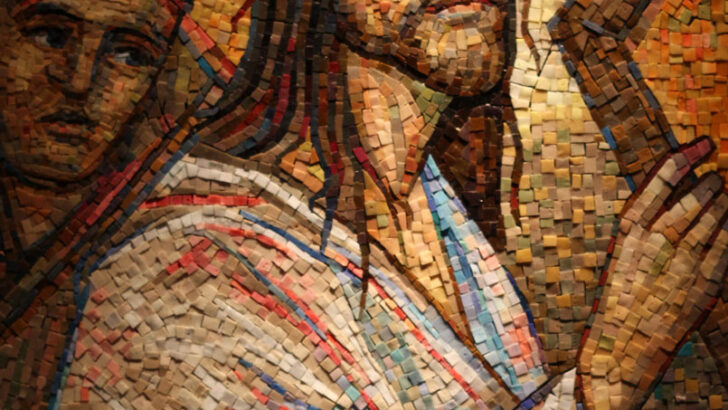We’ve all been there.
At the end of a long day, the phone rings, there’s a knock on the door, the boss stops by your desk, or an email arrives.
“Can you help me with something?”
“Someone has called in sick.”
“We need to get this out tonight.”
And there goes the rest of your day. Four hours and two cups of coffee later, you’re finally turning off the light to go home.
When I was working in broadcast news, every winter storm, power failure or plane crash halfway around the world could mean a long night or a lost weekend. It goes with the territory. Doctors and first responders know it well. We saw that vividly during the pandemic, when the long shifts and gruelling demands made headlines and made heroes.
Jesus couldn’t bring himself to say ‘Enough. I’m outta here’. He didn’t punch a clock. And he didn’t turn anyone away”
And now, this Sunday’s Scripture readings make us ask: “Was it that way for Jesus?”
In the Gospel, Mark shows us a day in the life of the saviour of the world – a man on the job, arriving at a house to heal Simon’s mother-in-law. But that’s just the beginning. Once that was done, “the whole town was gathered at the door”. The sick, the possessed, the troubled of all kinds found their way to Capernaum. The Gospel doesn’t mention it, but we can presume Jesus couldn’t bring himself to say “Enough. I’m outta here”. He didn’t punch a clock. And he didn’t turn anyone away.
No escape
Even when Jesus was done, he wasn’t really done. He “went off to a deserted place” to pray, but there was no escape. The apostles found him. “Everyone is looking for you,” they said. What they didn’t say (but may have been thinking) is: “Rabbi, come on. Pack up. It’s time to get back to work.”
It turns out the Son of God can’t get a day off. How did he respond? Did he sigh, grumble, complain, file a grievance?
No. “Let us go … For this purpose have I come.”
Among other things, this episode serves as a vivid reminder that Jesus wasn’t that different from the rest of us. He toiled and he tired. He didn’t just preach parables and cure diseases with a wave of his hand. He gave people time. He gave them himself. He needed to be present to people, to listen to them, to pray for them and to make their healing possible. He was called on repeatedly to give, sacrifice, surrender. It wasn’t easy.
❛❛Jesus took time to get away from the madding crowds to sit and pray”
At every Mass, we commemorate the ultimate sacrifice of Calvary, but how often do we think about Christ’s sacrifice of daily living? The patience he needed to give time to others? The exhaustion of repeatedly confronting so much hardship and suffering? The struggle of simply being human?
It is a struggle so many of us contend with, in ways large and small. But Christ’s words to his apostles after a morning of prayer offer us another perspective.
“For this purpose have I come.”
Struggles
Put another way: He had work to do. He had a mission to fulfil. He came into the world to sweat with us, to bear with us, to struggle with us – and to help us endure our own struggles until, by God’s grace, we are made new.
This reading would be a fitting passage for reflection on Labour Day, reminding us that Jesus also laboured. He did the work he was born to do – exhausting, demanding, sometimes relentless work that transcended daily life because it was the ongoing work of salvation, carried out with self-emptying love.
Most of us will never think of our daily lives that way. But this episode has something to teach us, and to remember: Jesus took time to get away from the madding crowds to sit and pray.
Out of that prayer came his declaration: “For this purpose have I come.”
In times of weariness and stress, when the world and our work just get to be too much, may we remember Jesus the worker, the listener, the teacher, the healer – and may we remember, too, how through prayer and self-sacrifice he came to embrace what he was born to do.
The familiar question, WWJD, What Would Jesus Do, gives us this week a simple answer for facing the wearying hardship of daily life.
WWJD? Work. Rest. Pray. Repeat.
Deacon Greg Kandra is an award-winning author and journalist, and creator of the blog, ‘The Deacon’s Bench’.



